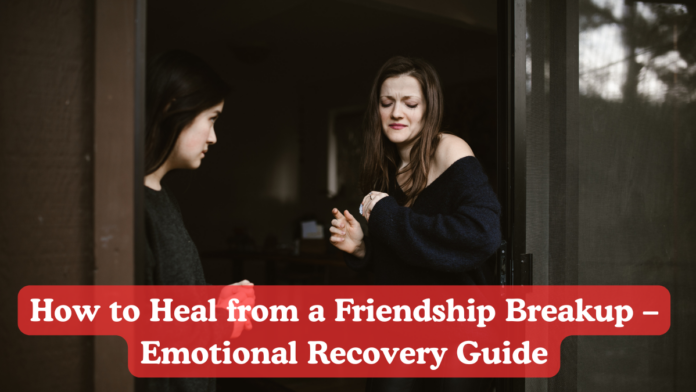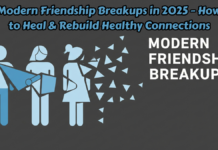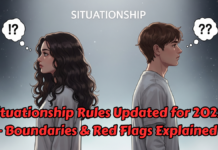Losing a best friend can be one of the most painful experiences, often rivaling the heartbreak of romantic relationships. Friendships are built on trust, shared experiences, and emotional support, making their loss deeply impactful. Whether the breakup was sudden or gradual, the emotional recovery process requires patience, self-reflection, and intentional healing.
Why Friendship Breakups Hurt So Much
Friendship breakups can feel devastating because:
- Loss of Emotional Support: Friends often serve as confidants, making their absence feel like losing a safety net.
- Shared Memories: The end of a friendship can make past experiences feel bittersweet or even painful.
- Identity Shift: Losing a best friend may force you to redefine your social circle and personal identity.
- Unresolved Feelings: Unlike romantic breakups, friendship endings often lack closure, leaving lingering questions.
Steps for Emotional Recovery After Losing a Best Friend
Healing from a friendship breakup takes time, but these steps can help you navigate the emotional recovery process:
1. Allow Yourself to Grieve
It’s normal to feel sadness, anger, or confusion after losing a best friend. Acknowledge your emotions instead of suppressing them. Journaling or talking to a trusted person can help process your feelings.
2. Reflect on the Friendship
Consider what the friendship meant to you and why it ended. Was it a toxic relationship, or did life circumstances create distance? Understanding the breakup can provide clarity and prevent future emotional distress.
3. Limit Contact to Create Space
If the breakup was painful, reducing contact can help you heal. Avoid checking their social media or revisiting old conversations, as this can prolong emotional recovery.
4. Seek Grief Support
Talking to a therapist, support group, or close friends can provide comfort. Surrounding yourself with people who uplift you can ease the pain of losing a best friend.
5. Engage in Self-Care Activities
Prioritize activities that bring you joy and relaxation, such as exercise, meditation, or creative hobbies. Self-care helps rebuild emotional strength and fosters personal growth.
6. Open Yourself to New Connections
While no one can replace a lost friendship, forming new relationships can help fill the emotional void. Be open to meeting new people and strengthening existing friendships.
7. Accept That Some Friendships Aren’t Meant to Last
Not all friendships are lifelong, and that’s okay. People grow and change, and sometimes relationships naturally fade. Accepting this can bring peace and closure.
FAQs
1. How long does it take to heal from a friendship breakup?
Healing varies for everyone. Some people recover in weeks, while others take months or even years. The key is to allow yourself time and space to process the loss.
2. Should I reach out to my former friend for closure?
If you feel unresolved emotions, a respectful conversation may help. However, if the breakup was toxic, it’s best to focus on moving forward.
3. How do I stop missing my best friend?
Engage in activities that bring you joy, surround yourself with supportive people, and remind yourself that healing takes time.
4. Can a broken friendship be repaired?
Some friendships can be rekindled if both parties are willing to communicate and resolve past issues. However, not all friendships are meant to be restored.
5. How do I build new friendships after a breakup?
Join social groups, engage in hobbies, and be open to meeting new people. Building connections takes time, but meaningful friendships will come naturally.
Final Thoughts
Friendship breakups can be deeply painful, but they also provide opportunities for growth, reflection, and renewal. Healing from losing a best friend takes time, but embracing the emotional recovery process allows you to rebuild your sense of self and form stronger, healthier connections in the future. While grief support and self-care are essential, accepting that some friendships naturally fade can bring peace. Cherish the positive memories, learn from the experience, and move forward with confidence—knowing that new, meaningful friendships await.




